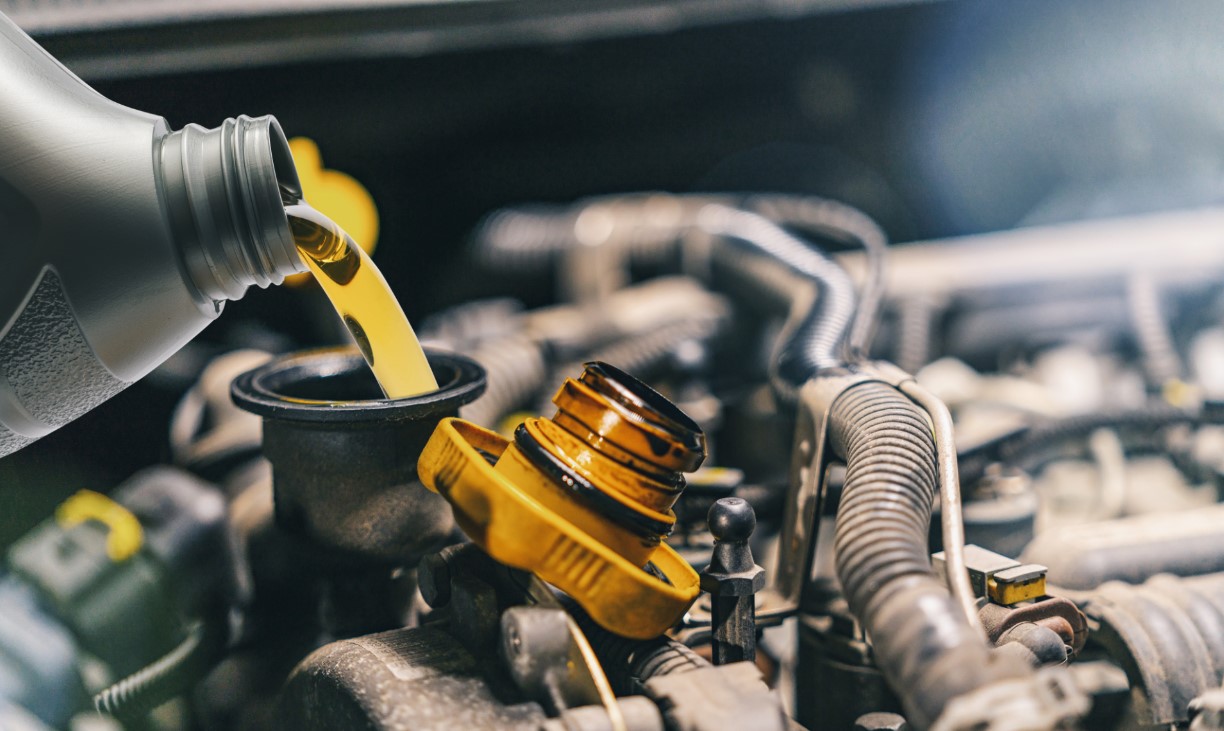A regular oil change is one of the most essential aspects of vehicle maintenance, crucial for the long-term health and performance of your car.
The Importance of Regular Oil Changes for Your Car’s Health
Taking care of your car is essential to make sure it runs smoothly and lasts a long time. One of the easiest and most important things you can do is get regular oil changes. But why is this so important?
1. Keeps the Engine Running Smoothly
Your car’s engine has many moving parts. Oil acts like a lubricant, keeping these parts from rubbing too hard against each other. If you don’t change your oil regularly, it can become dirty and thick, making it harder to do its job. Fresh oil keeps everything moving smoothly.
2. Removes Dirt and Debris
Over time, these particles mix with the oil and can cause it to become thick and sludgy.
3. Prevents Overheating
Your engine gets really hot while it’s running, and oil helps keep it cool. It absorbs some of the heat and keeps the temperature down. If your oil is old or too dirty, it can’t do this as well, and your engine might overheat.
4. Better Gas Mileage
A well-lubricated engine doesn’t have to work as hard, which means it uses less fuel. When your oil is fresh and clean, your car’s engine runs more efficiently, saving you money on gas. Old, dirty oil can make the engine work harder, which can lower your gas mileage.
5. Helps Your Engine Last Longer
Getting regular oil changes can extend the life of your car’s engine. Clean oil helps protect engine parts from damage, meaning you’re less likely to face expensive repairs down the road. A healthy engine can keep your car running well for many years.
6. Keeps Your Warranty Valid
If your car is under warranty, regular maintenance like oil changes is often required. So, sticking to a regular oil change schedule helps you avoid this issue.
What Happens If I Don’t Change My Oil?
Regular oil changes are vital to keeping your car’s engine in good health. But what happens if you skip an oil change or go too long without one? Here’s a breakdown of what could go wrong if you don’t change your oil:
1. Oil Becomes Dirty
Over time, the oil in your engine collects dirt, dust, and metal particles. These contaminants cause the oil to become thick and sludgy. Dirty oil can’t lubricate the engine parts as effectively, which leads to increased friction and wear on the engine.
2. Increased Engine Wear
Oil’s primary function is to reduce friction between the moving parts of the engine. When the oil is dirty or old, it loses its ability to lubricate effectively. This causes engine parts to rub against each other, which can lead to excessive wear and damage over time. If left unchecked, it could cause engine components to fail.
3. Overheating
Oil helps cool the engine by reducing friction and absorbing heat. When the oil becomes old and dirty, it can’t cool the engine as efficiently. As a result, the engine can overheat, which can cause serious damage. Overheating may lead to parts like the cylinder head or gaskets warping, which are expensive to repair.
4. Poor Fuel Efficiency
As the oil becomes thicker and less effective, the engine has to work harder to function properly. This increased effort burns more fuel, lowering your gas mileage. Over time, you’ll notice that your car consumes more fuel than it used to, which means you’ll spend more money at the gas station.
5. Engine Sludge Build-Up
When oil isn’t changed for an extended period, it can degrade and turn into a thick, gel-like substance called sludge. Sludge blocks the oil passages in the engine, preventing oil from reaching critical parts. This lack of lubrication can cause the engine to seize up and fail, often requiring a costly repair or even engine replacement.
6. Voiding Your Warranty
If your car is still under warranty, most manufacturers require that you follow a regular maintenance schedule, which includes oil changes. Failing to change your oil as recommended can void your warranty. This means if your engine gets damaged because of neglected maintenance, you’ll have to pay for repairs out of pocket.
7. Complete Engine Failure
The worst-case scenario from not changing your oil is complete engine failure. Without fresh oil, engine parts can break down due to constant friction and heat. Eventually, the engine could seize, meaning it stops working entirely. At this point, repairs might be so expensive that replacing the engine or even the car may be more cost-effective.
Skipping oil changes can lead to a range of problems, from reduced fuel efficiency to complete engine failure. They keep your engine running smoothly and extend the life of your car. So, don’t wait too long—stay on top of your oil change schedule to avoid costly repairs down the road!
Should I Change My Own Engine Oil?
Changing your car’s engine oil is one of the most common and essential maintenance tasks. You might wonder if it’s something you can do yourself or if it’s better to leave it to a professional. In this blog, we’ll go over the pros and cons of changing your own oil, so you can decide what’s best for you.
Benefits of Changing Your Own Oil
1. Saves Money
One of the biggest reasons people change their own oil is to save money. When you do it yourself, you only have to pay for the oil and filter, without any labor costs. This can be more affordable compared to taking your car to a mechanic or a quick lube shop.
2. Gives You Control
When you change your oil yourself, you get to choose exactly what type of oil and filter you want. This gives you control over the quality of the products going into your car. You can select oil that best suits your driving needs, and you know the job is done to your standards.
3. Sense of Accomplishment
There’s something satisfying about maintaining your own car. If you like learning new skills and enjoy working with your hands, changing your oil can give you a sense of accomplishment. It’s a great way to become more familiar with your car and understand how it works.
4. Convenience
Sometimes, changing your own oil can actually be more convenient. You don’t need to make an appointment or wait at a shop. You can do it on your own time, whether that’s early in the morning or on a weekend. Plus, once you get the hang of it, the process is pretty quick.
Downsides of Changing Your Own Oil
1. Requires Tools and Space
To change your oil, you’ll need a few tools, like a wrench, oil filter wrench, and a jack to lift your car. You’ll also need a place to work, like a garage or driveway, and a container to catch the old oil. If you don’t have these tools or the right space, changing your oil might be more trouble than it’s worth.
2. Disposing of Used Oil
After you change your oil, you have to dispose of the old oil properly. Used engine oil is hazardous to the environment, and you can’t just throw it away. Most areas have specific locations where you can drop off used oil for recycling, but this can add an extra step to the process.
3. Can Be Messy
Oil changes can get messy, especially if you’re new to the process. If you’re not careful, you might spill oil on yourself or on the ground, which can be hard to clean up. While you can avoid most messes by being prepared, it’s something to consider if you’re worried about dealing with spills.
4. Risk of Mistakes
If you’re not experienced, there’s a chance you could make mistakes during an oil change. Forgetting to properly tighten the oil filter or drain plug, or using the wrong type of oil, can cause problems for your engine. While these mistakes are rare and easy to avoid with attention to detail, they can still happen.
When It’s Better to Go to a Mechanic
If you’re unsure about changing your own oil or don’t have the right tools or space, going to a professional is a great option. Mechanics have the experience and equipment to do the job quickly and efficiently. Plus, they often perform additional services, like checking other fluids and inspecting your car for potential issues. While it may cost more, it can save you time and hassle in the long run.
Changing your own engine oil can be a rewarding and cost-effective way to maintain your car, but it’s not for everyone. If you enjoy hands-on work, have the necessary tools, and want to save some money, it’s worth giving it a try. However, if you’d rather avoid the mess or don’t feel comfortable doing it yourself, taking your car to a professional is always a safe option.
Whether you choose to DIY or visit a mechanic, the most important thing is to stay on top of your oil changes to keep your engine running smoothly!
Conclusion
Regular oil changes are a small investment that keeps your engine in top condition. They improve performance, fuel efficiency, and overall longevity, helping you avoid expensive repairs down the road. Follow the oil change intervals recommended by your car’s manufacturer for the best results.
A regular oil change is one of the simplest ways to care for your car. It helps the engine run smoothly, keeps it clean, prevents overheating, and even saves you money on gas. Most importantly, it can extend the life of your car, so you won’t have to deal with costly repairs.




